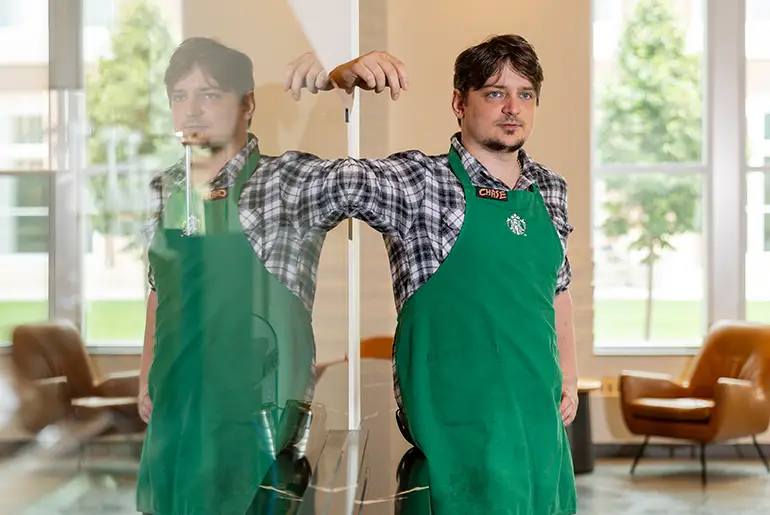

After graduating from high school in 2006, Chase Garber has held leadership positions in nearly every job he’s undertaken.
His journey took a significant turn 14 years later when he decided to enroll at the University of North Dakota to pursue a degree in social work, motivated by his personal experiences and the realization that he wanted to make a tangible difference in people’s lives.
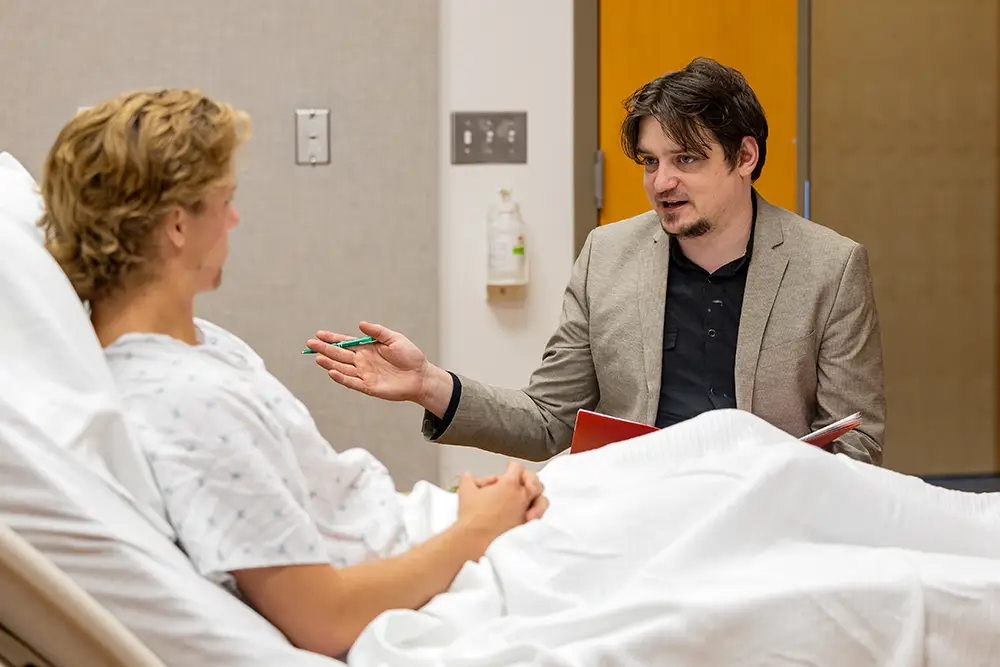
In 2012, Chase faced a life-changing battle with Hodgkin’s lymphoma. He decided to pursue a career helping patients leave the hospital prepared.
His decision to study social work was deeply influenced by his personal encounters with tragedy and illness.
“I had a couple of friends who died by suicide, and I realized I didn’t have the skills to help or recognize the signs,” Chase said. “So, I decided to go into social work to learn humanities and help people, instead of selling things.”
You can come back and succeed if you buckle down and make it happen. I have a goal in mind, and it allows me to push forward and make a difference somewhere.
Through 2012 and 2013, Chase faced a life-changing battle with Hodgkin’s lymphoma. While in treatment, he noticed a gap in care for cancer survivors.
“During treatment, the support was amazing,” he said. “But when I left the hospital, I had no support at all. I didn’t know how to pay for anything, figure out the next steps or rehab. I was just done.”
Determined to prevent others from facing similar challenges, Chase decided to pursue a career in which patients leave the hospital prepared.
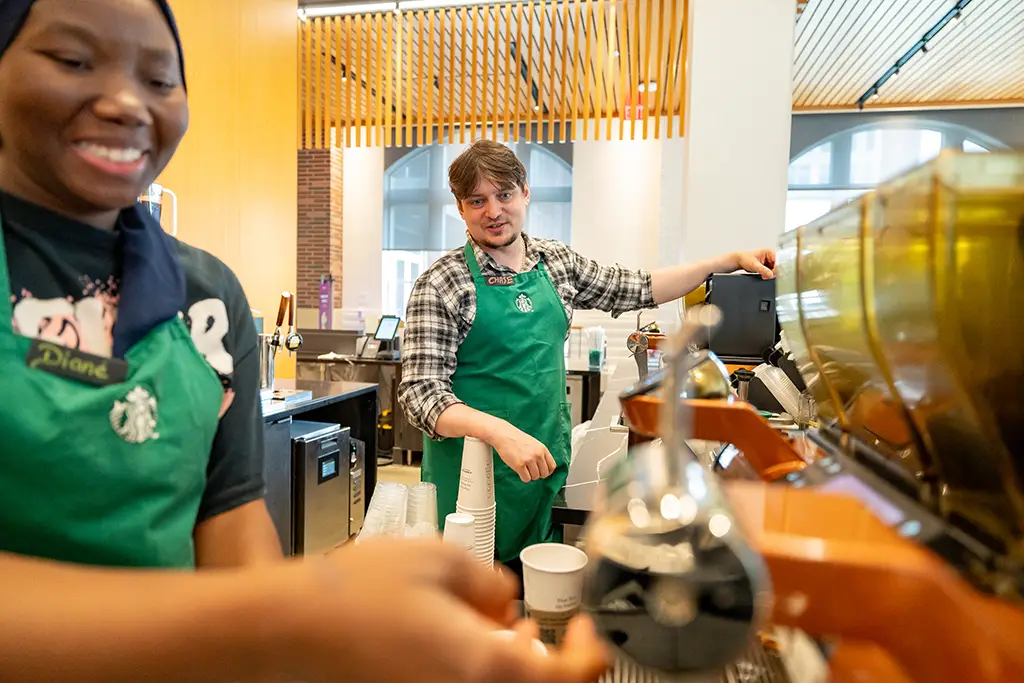
When not in class, Chase serves as one of two full-time managers at the Memorial Union Starbucks.
Returning to school after 14 years was daunting, but Chase’s dual role as a student and employee at UND has kept him grounded and focused.
“People shouldn’t be afraid to make these kinds of decisions,” Chase said. “You can come back and succeed if you buckle down and make it happen. I have a goal in mind, and it allows me to push forward and make a difference somewhere.”
When not in class, Chase serves as one of two full-time managers at the Memorial Union Starbucks. The job provides him with a unique perspective on student life at UND and reinforces his commitment to his goals.
“I get a different sense of pride working here than I would anywhere else,” he said. “Because I’m also going to school here, I have never felt more supported by my employer than I have here. The people here want to see me succeed.”
Balancing the demands of his job and academic program requires exceptional time management.
“I communicated a lot about what my class schedule looks like, and I just balance that into our workload here on campus,” Chase said.
“I work full-time, and I go to school full-time. It becomes a labor of love – if I didn’t like what I was doing, I doubt I would be able to make it happen.”
Chase’s dedication to his studies and his commitment to helping others have been greatly supported by the UND community.
“The UND social work team, the entire staff, has been amazing,” he said. “Everyone has a wealth of experience to draw on, and I’ve gotten so much even outside of the classroom because of that wealth of knowledge they have.”
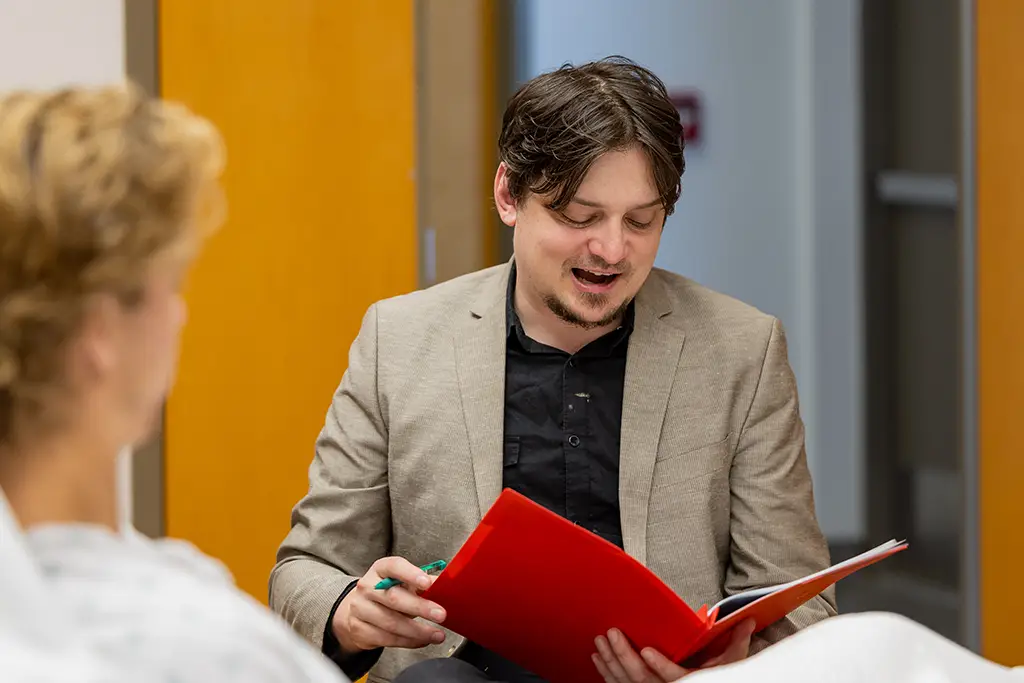
Thinking about life after college, Chase aims to integrate all his experiences to achieve his career goals helping people.
His internship at Altru Hospital this summer has presented new challenges and learning opportunities, expanding his understanding of patient care. Unlike the team projects in his coursework, his internship involves guiding patients through significant decisions, such as choosing nursing homes, without influencing their choices.
“I can’t adjust people’s viewpoints in these situations,” he said. “I can just give them all the information, and they have to make the decision. I’m just supporting them. That’s been challenging for me.”
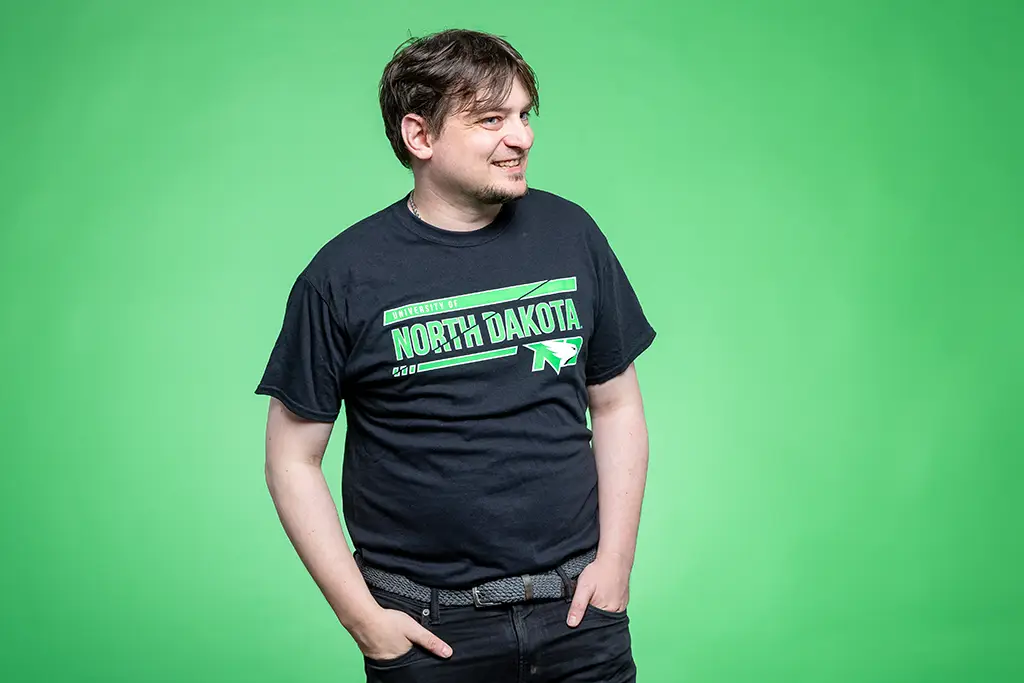
Chase’s dedication to his studies and his commitment to helping others have been greatly supported by the UND community.
Chase credits the support and guidance he’s received from the social work staff with his ability to adapt his mindset and learn to support patients effectively.
“The thing about social work is a lot of the topics are really hard,” he said. “The professors are incredibly delicate with the way they communicate, but they also project an air of knowledge and trust. That’s been incredibly helpful.”
Thinking about life after college, Chase aims to integrate all his experiences to achieve his career goals. “I want to discharge people from the hospital and help them, preferably from a cancer center,” he said.
“And I’ll pursue my master’s degree so I can manage a team of discharge planners. This way, I’ll be able to do what I am good at in the field I’m passionate about.”